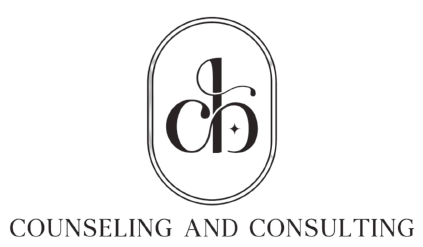Mental Health Blog

How Depression Shows Up in High Achievers
Have you ever wondered how someone who seems to have it all together—constantly excelling at work, achieving their goals, and inspiring others—could be struggling with depression? How can high achievers, who appear to be the picture of success, silently fight an internal battle that remains hidden behind their accomplishments? The truth is, depression doesn’t always look like sadness or withdrawal; for high achievers, it can show up in ways that are often overlooked or misunderstood.
High achievers are often seen as the epitome of success, effortlessly juggling multiple responsibilities, excelling in their careers, and setting standards for themselves and those around them. They inspire others with their relentless drive, but behind this facade of success, there often lurks an unseen battle—depression.
Unlike the stereotypical image of depression—one where individuals are visibly withdrawn or unable to function—depression in high achievers may present itself in more subtle, insidious ways. Recognizing how depression shows up in these individuals is crucial, not only for those affected but for those who care about them, as early intervention can make a significant difference.

1. The Overachievement Mask: The Pressure to Be Perfect
For high achievers, success is a way of life. Their goals are often set sky-high, and they push themselves relentlessly to meet them. However, this intense drive can sometimes mask the signs of depression. High achievers may exhibit perfectionism, working themselves to exhaustion in an effort to avoid failure or to meet internal or external expectations.
When perfectionism goes unchecked, it creates a cycle where anything less than perfect feels like failure, leading to feelings of inadequacy and self-doubt. This constant pursuit of flawless results can lead to burnout, anxiety, and ultimately, depression. A high achiever may not always feel the weight of this burden until it becomes too heavy to bear.
2. The Imposter Syndrome: A Constant Feeling of Inadequacy
Even when high achievers achieve remarkable feats, they may still feel like they don’t deserve their success. This is known as imposter syndrome—a psychological pattern where individuals doubt their accomplishments and fear being exposed as a fraud. Despite their hard work and impressive track records, they may struggle with feelings of worthlessness and anxiety about not measuring up, both to their own standards and to others.
The pressure to maintain the image of success and achievement can be draining. As the internal narrative of not being "good enough" plays on repeat, it can fuel depressive thoughts and emotions, leading to a diminishing sense of self-worth.
3. The Workaholic Trap: An Escapism Strategy
In many high achievers, work becomes a coping mechanism for deeper emotional struggles. By immersing themselves in tasks, they create a sense of accomplishment that distracts them from the underlying feelings of sadness, loneliness, or emptiness. However, this "workaholic" tendency can contribute to a deeper sense of isolation and alienation, as personal relationships, rest, and self-care often take a backseat.
While on the outside, these individuals may seem to thrive in their work environments, they may feel increasingly disconnected from themselves and others. The constant cycle of work can also lead to chronic fatigue, burnout, and a diminished sense of joy in their achievements, reinforcing the downward spiral of depression.
4. Perfectionism and Procrastination: A Paradoxical Cycle
One might think that high achievers are always on top of things, but many suffer from a paradoxical relationship with procrastination. The fear of not meeting their incredibly high standards or the possibility of failing can cause them to delay tasks, not out of laziness, but from an overwhelming sense of fear and dread.
This procrastination, caused by an inner fear of imperfection, often leads to feelings of guilt and shame, which only deepen the depressive symptoms. The fear of not living up to one’s own expectations can make it nearly impossible to start projects, and the resulting delay only amplifies feelings of inadequacy.
5. The Lonely Road: Emotional Isolation
High achievers often prioritize their goals over personal relationships, believing that they don’t have the time or energy to nurture friendships or family bonds. This emotional isolation can exacerbate feelings of loneliness, even when surrounded by colleagues or loved ones. As these individuals focus more on tasks than on personal connections, they may begin to feel disconnected from others, fueling feelings of sadness and depression.
Moreover, the fear of being vulnerable—of revealing their struggles to others—can create a wall of emotional isolation. The "lone wolf" mentality, where a high achiever feels like they must solve their problems alone, can make it harder to reach out for help, allowing depression to fester in silence.
6. Sleep Disturbances and Physical Exhaustion
Depression in high achievers can also manifest physically. These individuals often neglect their mental health in favor of productivity, leading to exhaustion, anxiety, and sleep disturbances. Despite their outward appearance of success, they may struggle with insomnia, difficulty falling or staying asleep, or an overall feeling of fatigue that doesn’t seem to go away.
Sleep disruptions can be a sign that the body is under stress, and chronic lack of rest further contributes to depression. As the body becomes physically depleted, so too does the emotional resilience needed to cope with the pressures of being a high achiever.
7. Self-Sabotage: A Hidden Struggle
While high achievers are usually focused on success, some may engage in self-sabotaging behaviors that undermine their accomplishments. This might include setting themselves up for failure by overcommitting, not setting boundaries, or even procrastinating. In some cases, they may subconsciously feel unworthy of their success or fear that it will all come crashing down.
This tendency to undermine their own achievements can be a hidden sign of depression, manifesting in ways that make it harder for these individuals to maintain their high standards and achieve their goals. The cycle of self-sabotage further deepens feelings of guilt and inadequacy, further perpetuating depression.
How to Help High Achievers Who Are Struggling with Depression
If you or someone you know is a high achiever experiencing depression, it's important to acknowledge the emotional strain that comes with this lifestyle. Here are a few ways to offer support:
Normalize Vulnerability – Encourage open discussions about mental health and the challenges of maintaining high standards. Vulnerability is a strength, not a weakness.
Promote Rest and Self-Care – Help prioritize breaks, rest, and personal time away from work. Self-care is not a luxury; it’s necessary for mental health.
Focus on Progress, Not Perfection – Encourage celebrating small wins and understanding that progress, not perfection, is what truly leads to long-term fulfillment.
Professional Support – Seeking therapy or counseling is a healthy way to address underlying emotional struggles. A mental health professional can help navigate the complex emotions of being a high achiever while dealing with depression.
Create Support Systems – Encourage building or strengthening a support network of friends, family, or mentors who can offer encouragement and understanding.
Final Thoughts
Depression in high achievers often goes unnoticed due to its subtle and often paradoxical presentation. It’s not always about visible sadness—it can manifest as perfectionism, imposter syndrome, or a constant push to perform, masking deeper emotional pain. Recognizing the signs and offering support is essential in helping high achievers navigate their mental health challenges, leading them toward a healthier balance between success and self-care.
Disclaimer: The content in our blogs are for informational purposes only and should not be considered a substitute for professional mental health advice, diagnosis, or treatment. Always consult with a qualified mental health professional for personalized guidance and care. In case of a mental health crisis or emergency, please call emergency services immediately.

© 2023 All Rights Reserved
We are offering services online via Telehealth
(614) 957-3321
Hours: Monday-Friday 9:00am-6:00pm

© 2023 All Rights Reserved

